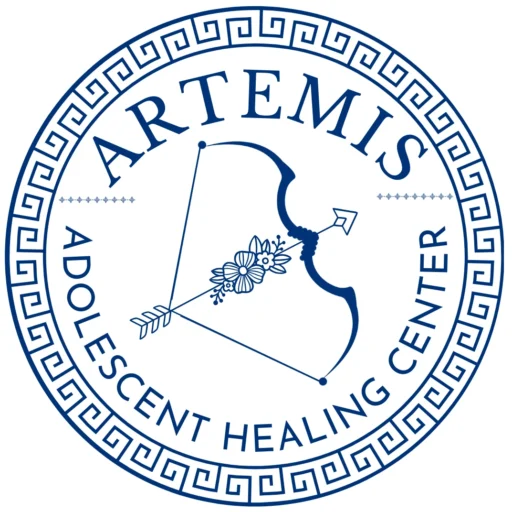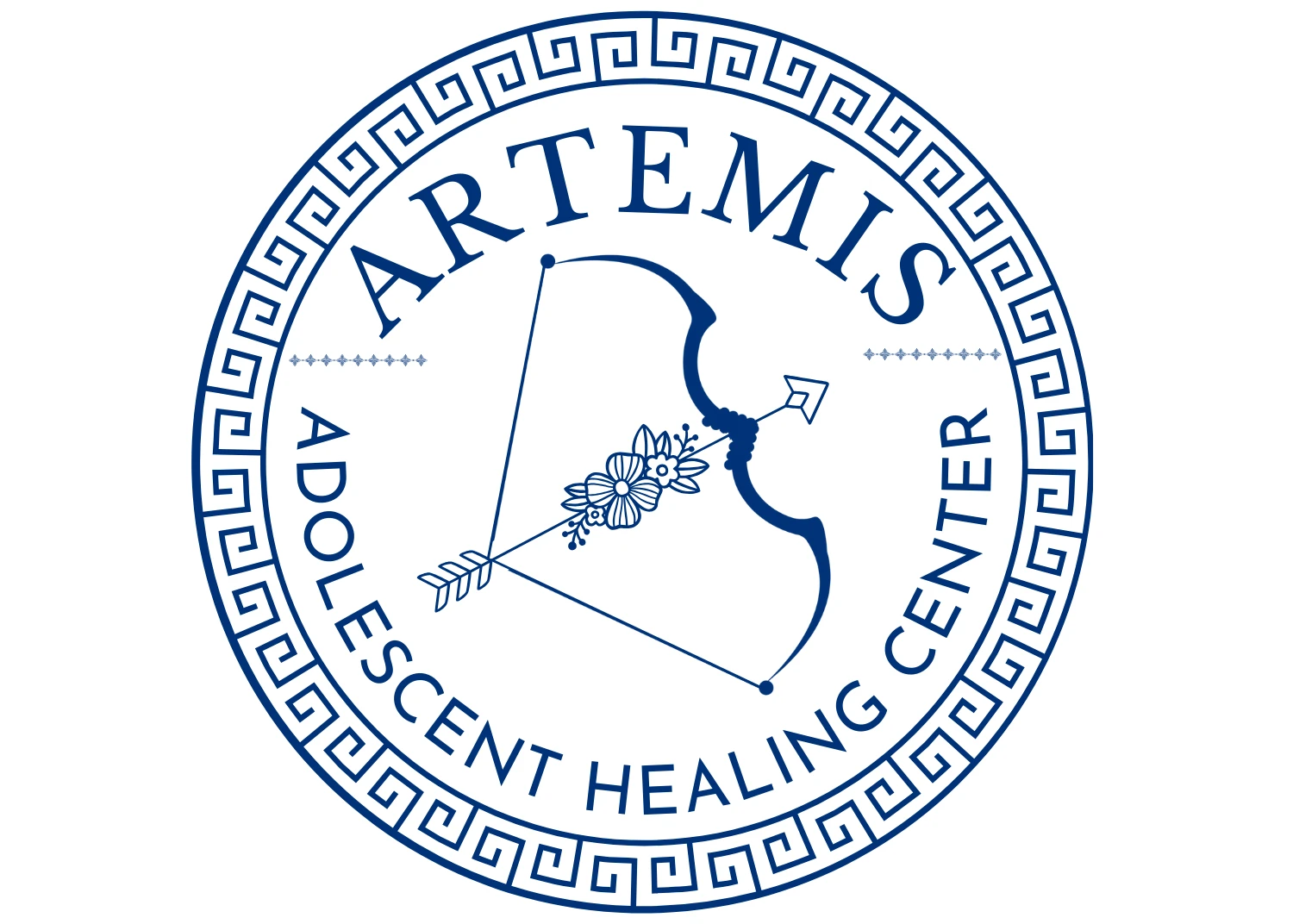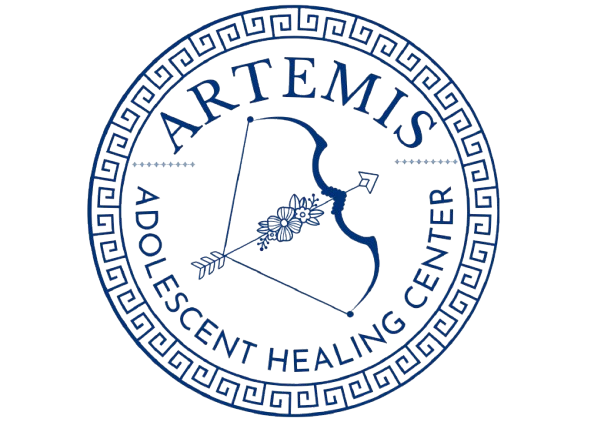Heal From Self-Harming at Artemis Adolescent Healing Center
Self-harm is a highly dangerous, damaging, and ineffective coping skill. Unfortunately, for some teens, it’s all they know to do to express their emotions despite its dangers.
For parents wondering, “What self harm treatment for teens is best for my child?,” we offer several different approaches at Artemis Adolescent Healing Center.
These include mental health treatment, trauma and individual therapy, dialectical behavioral therapy, and other research-backed therapies. Our goal is to teach teens the skills they need to manage emotions in healthy ways, heal from past traumas, and build resilience for the future.
Keep reading to learn more about effective treatment for self-harm behaviors in adolescents and how Artemis can help your child on the path to healing their mental health.
Get Confidential Trauma and Mental Health Assessment
What Constitutes Self-Harm?
Self-harm can include many different acts that a person uses to cope with feelings like depression, social isolation, anxiety, or emotional distress.
There are many types of self-harm, including:
- Hair pulling
- Head banging
- Punching walls
- Cutting with razor blades or other sharp objects
- Burning
- Bruising
These are just some of the many ways teens might use self-harm to either handle their pain or experience feelings. Research shows that teens who experience depression and anxiety are at higher risk of self-harm.
With both of these issues on the rise in teens, it’s important now more than ever for families to notice if their teens are engaging in self-harm. Family members might notice signs of self-injury in teens, such as wearing long sleeves or hiding their arms or legs.
Unfortunately, studies show that self harm behaviors are now common in teens, with as many as 8% of teens engaging in self-injury.
Treatment Begins With Understanding Root Causes

The root causes of self harm behavior are as complex as the young people who choose to use this as their coping mechanism. At Artemis, we know the best self-harm treatment for teens needs to be highly tailored.
Research shows that self-harm can have many different causes, with some of the most common being eating disorders, borderline personality disorder, and developmental disabilities.
However, studies show that other psychiatric conditions that can lead to self-harm include:
- Depression
- Post-traumatic stress disorder
- Generalized anxiety disorder
- Conduct disorder
- Oppositional defiant disorder
- Substance use disorder
No matter which of these disorders your teen has, if any, it’s important to create a treatment plan tailored to their psychiatric condition. Even if your child does not have a diagnosed disorder, it’s vital to seek help if they are turning to self-harm.
Why Self-Harm Treatment For Teens Is a Priority
The sooner teens can get help for self-harm, the sooner a therapist can begin creating an effective treatment plan for them. One of the scariest issues with self-harm is that it can predict future episodes of self-injury.
This is because research shows that repeated self-harm leads to advanced self-harm methods and increases the risk of medical severity. While as a parent it might be difficult to confront your child about their self-harm, it’s never too early to intervene.
What is the Best Self Harm Treatment for Teens?
Self-harm treatment for teens is never a one-size fits all approach. At Artemis Adolescent Healing Center, we take other mental health conditions besides depression into consideration.
By looking at the root cause of self-harm and treating co-occurring psychiatric disorders, we attack self-harm behaviors for good. Here are some of the many inpatient and outpatient care treatments we use to help high-risk teens begin the process of healing.
Dialectical Behavior Therapy
Dialectical behavior therapy, also known as DBT, is one of the research-backed therapies we use to help young people who engage in self harm. DBT is proven to reduce both self harm behaviors, suicidal ideation, and suicidal thoughts in teens.
During DBT at Artemis, a mental health provider will lead a group of teenagers who engage in self-injury or have other mental health challenges. Having a group setting can be a great way for your teen to socialize, get additional support, and learn the skills they need to recover.
During group, this mental health professional will teach teens who self-injure other ways to manage stress and overwhelming feelings. As a parent, you can feel confident knowing that your teen is being guided by a professional counselor who is teaching your teen the skills they need to manage emotional distress without self-harming behaviors.
Some of the many skills DBT teaches include:
- How to communicate distress
- Mindfulness practices
- Distress Tolerance
- Emotional Regulation
- Interpersonal Effectiveness
Learning these skills can help teens manage their emotional pain without resorting to injury. While DBT is usually reserved for people with bipolar disorder, emerging studies show that it is highly effective for people who have suicidal thoughts and behaviors (including self-harm).
DBT is often used as part of teen suicide prevention approaches for youth who are considered at-risk.
Dual-Diagnosis Treatment and Self Harm in Young People

Distressing emotions that lead to self-harm can be the side effect of several different psychiatric disorders. For instance, seeking attention by cutting can be a symptom of borderline personality disorder, which can make it hard for people to manage emotions without self-harm.
Dual-diagnosis treatment is an approach that combines both mental health and substance abuse treatment.
At Artemis Adolescent, our ultimate goal is to treat any major underlying disorders that lead to self-harm and suicidal ideation. Whether that involves treating substance use disorder and depression, addiction and BPD, or even addiction and bipolar disorder, we stop at nothing to tackle all disorders at once.
Research shows that dual diagnosis treatment can lead to reduced substance use. The less someone is in the throes of their addiction, the better their overall outcomes.
Talk Therapy for Teens Who are Self-Harming
No matter the age group, we know that individual psychotherapy is key to helping clients with suicidal intent and self-harm behaviors. Talk therapy can involve many different types of support, including:
- Dialectical Behavioral Therapy, or DBT
- Cognitive-behavior therapy, or CBT
- Motivational Interviewing, or MI
During talk therapy, one of our trained clinicians will sit down with a client and discuss their feelings and coping skills. Conversations can include problem-solving with family members, discussing ways that self-harm can be reduced, and understanding why self-injury is the go-to coping mechanism.
With the help of our mental health professionals, teens can learn skills they can use to cope with negative thoughts. Your teenager can also identify ways to reduce self-injury and learn how to use other coping skills to manage tough emotions.
Get Accredited Treatment Programs at Artemis
Medication Management for Self-Harming
Medications play an important role in helping reduce self-injury in the short term and long-term. Some of the many medications research shows can help reduce self-harm include:
- SSRIs
- Naltrexone
- Atypical antipsychotics
- Mood stabilizers
- Clonidine
Our team knows how crucial it is for teens to not only engage in school and therapy, but also to take medications regularly. We are committed to working with teens and their loved ones to develop a medication management plan that encourages healthy coping skills while also monitoring side effects closely.
We also share with our clients who self-injure and have a mental health diagnosis what role medications play in their treatment plan. While medications can help in managing symptoms, they don’t necessarily address the root cause of self-injury. Therapy, mindfulness practices, and other healthy coping skills we teach at Artemis are just as important in the recovery process.
Teen Trauma Treatment

Research shows that people who self-harm are more likely to suffer from post-traumatic stress disorder, or PTSD. For teens who have had a difficult upbringing or have unresolved trauma, our goal is to help them find ways to cope with their trauma and develop a sense of well-being.
Trauma therapy is one of the best ways to do this. Our focus is on helping adolescents find ways to resolve their trauma head-on, including through:
- Eye-movement desensitization and reprocessing (EMDR): This therapy involves a series of eye movements while recalling traumatic memories in a safe environment. The goal is to desensitize the individual to their trauma and facilitate processing and healing.
- Cognitive-behavioral therapy (CBT): This type of therapy focuses on identifying negative thought patterns and behaviors related to trauma, and replacing them with more positive ones. It can also involve exposure therapy, where individuals gradually confront their fears or triggers in a controlled setting.
- Art therapy: Sometimes it may be difficult for teens to express their emotions through words, especially when it comes to traumatic experiences. Art therapy provides an alternative form of expression through various creative activities such as painting, drawing, and sculpting. This can be especially helpful for those who struggle with verbal communication or processing difficult emotions.
- Group therapy: Group therapy involves a small group of individuals sharing their experiences and supporting each other under the guidance of a therapist. It provides a safe and supportive environment for teens to connect with others who have gone through similar experiences. Group therapy can also help teens realize that they are not alone in their struggles and offer them different perspectives on how to cope with trauma.
- Yoga and mindfulness: Yoga and mindfulness techniques have been shown to reduce symptoms of anxiety, depression, and post-traumatic stress disorder (PTSD). These practices involve focusing on the present moment through breathing exercises, meditation, and physical movements. They can help teens manage stress, increase self-awareness, and improve overall mental health.
These are just some of the many approaches we use to help teens cope with trauma. Remember, everyone’s journey is unique and there is no one-size-fits-all solution when it comes to healing from trauma.
We know the most important thing is to create a safe and supportive environment for teens to process their experiences and emotions. By providing them with resources and encouraging open communication, we can help them build resilience and move towards healing.
What to Expect During Treatment for Self-Harm at Artemis

Most teenagers might feel shy when first enrolling into self-harm treatment. At Artemis Adolescent Healing Center, we make it our mission to ensure that teens are receiving the one-on-one care they need as well as continue to actively engage in treatment.
From the moment teens walk into our treatment center, our therapist will meet with them and their family members.
We want to create a treatment plan that involves everyone to ensure they feel safe and supported throughout their journey to recovery.
Throughout the treatment process, teens can expect to engage in individual therapy sessions, group therapy sessions, and family therapy sessions in addition to other treatments. These sessions are designed to help teens understand the underlying causes of their self-harming behaviors and develop healthy coping mechanisms.
Holistic and Individualized Mental Health Treatment for Teens
In addition to therapy sessions, our center offers various activities and programs such as art therapy, mindfulness exercises, and outdoor activities. These activities allow teens to express themselves creatively, learn relaxation techniques, and build confidence. It’s important for teenagers and their parents to know that treatment is not a quick fix and takes time.
It’s also normal for them to experience some resistance or discomfort during the treatment process. However, with the support of our trained professionals, we believe every child has a chance at recovery.
Up To 100% of Rehab Costs Covered By Insurance
Seek Help For Your Child and Stop Teen Self-Harm Now
All teenagers deserve to be heard, learn healthy coping mechanisms, and have the opportunity to heal. If you or someone you know is struggling with self-harm, it’s important to seek help now.
There are many resources available including therapy, support groups, and extracurricular activities available at Artemis Adolescent Healing Center.
Our team of licensed professionals is here to support and guide both teenagers and their families through the journey of healing.
Call us today to schedule a consultation to help manage self-harm, suicidal ideation, and any other mental health concerns. Your teen’s health and well-being are our top priorities.






